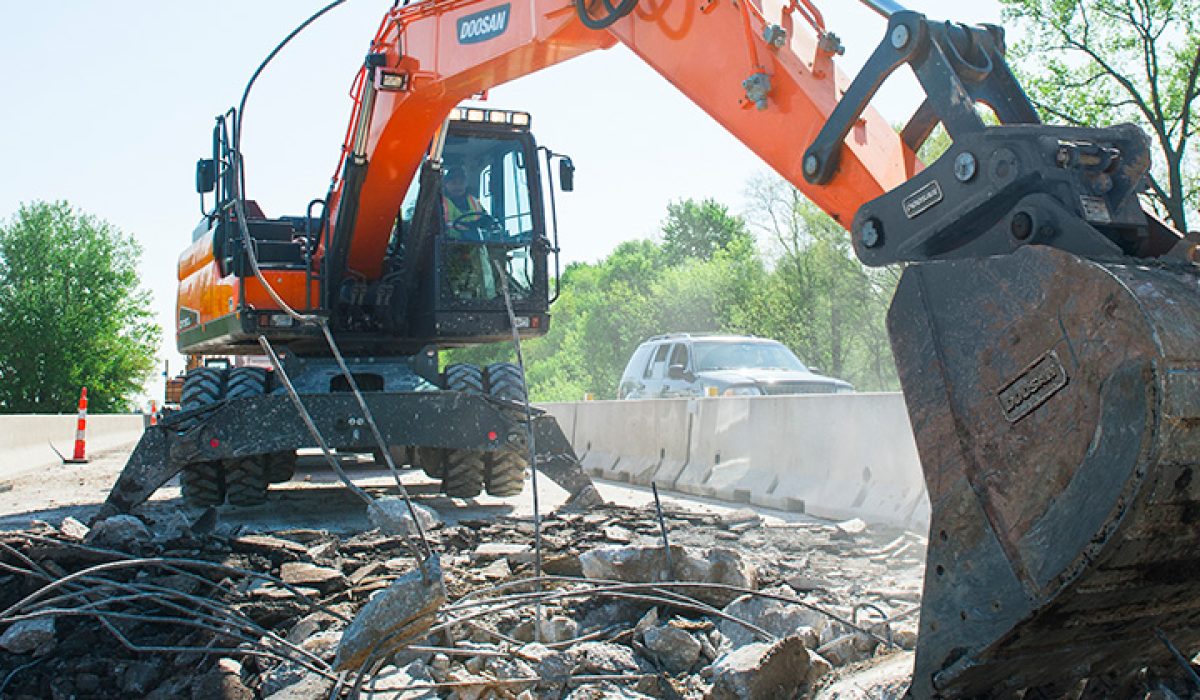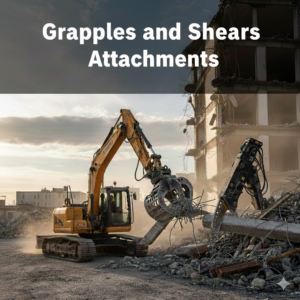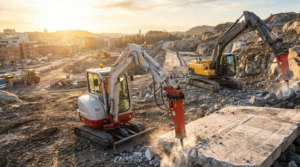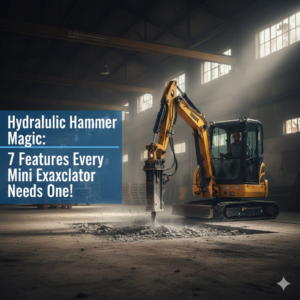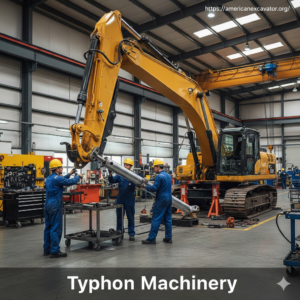Wheel excavators are remarkable machines that can perform a wide array of tasks and navigate environments that might be challenging for other heavy equipment. By carefully considering jobsite requirements, machine performance features, and maintenance needs, you can determine whether purchasing or renting a wheel excavator is the best choice for your business.
1. Assessing Job Site Requirements
When deciding whether to purchase or rent a wheel excavator, it’s crucial to thoroughly evaluate the specific needs of your job site. Here are some essential questions to guide your decision:
- Scope of Work: Is the excavator intended for a single job or multiple projects? Will its tasks evolve over its lifetime in your fleet?
- Workspace Constraints: Does the job site have any space limitations that the excavator needs to accommodate?
Wheel excavators, equipped with rubber tires, excel on finished surfaces like concrete and asphalt. They are particularly suited for:
- Highway and street development
- Bridge construction
- Building and manufacturing operations
- Site development and land improvement
- Ditch-cleaning projects
- Underground utility installations
If you require an excavator for a short-term project or occasional use, renting might be the best option. However, for long-term or ongoing projects, purchasing an excavator could be more cost-effective.
2. Ensuring Stability on the Jobsite
Stability is a key concern for any heavy equipment. Wheel excavators maintain stability during heavy digging and lifting tasks through several features:
- Tires, Dozer Blade, and Outriggers: Just as crawler excavators rely on their undercarriage, wheel excavators use their tires, a dozer blade, and outriggers to stay stable.
- Configuration Options:
- A front dozer blade with two rear outriggers
- Four outriggers, replacing the blade with two additional outriggers
The dozer blade can act as a secondary machine for leveling or backfilling material and stabilizing the excavator during digging. Its large base and parallel design minimize ground pressure. Individually controlled outriggers can level the machine on uneven ground.
When the outriggers are deployed, wheel excavators achieve stability comparable to crawler models, providing similar lifting capacities.
Learn More: Used Construction Equipment: 15 Tips For Savvy Investors
3. Mobility and Versatility
Wheel excavators are designed for excellent mobility and versatility, making them ideal for various job sites:
- Reduced Transport Needs: The wheels enable short-distance travel without needing a trailer, enhancing convenience and efficiency.
- Adjustable Travel Speeds: Operators can choose from three transmission speeds to match job site requirements:
- High travel speed (up to 23 mph) for transporting the excavator quickly.
- Creep mode (maximum of 2.5 mph) for precise movements on rough terrain or during ditch cleaning.
Wheel excavators’ compact design allows them to maneuver in confined spaces, such as a single lane of traffic, without disrupting other operations or damaging infrastructure. The two-piece, variable angle boom provides optimal visibility and flexibility, making it easier for operators to work efficiently in tight spaces.
4. Maintenance Considerations
Regular maintenance is essential to keep wheel excavators running smoothly and minimize downtime:
- Tire Inspections: Operators should regularly check tire pressure, wear, and damage. The owner’s manual provides detailed maintenance schedules.
- Preventing Tire Damage: Look for rocks wedged between dual tires, which can cause failures. While steel spacer rings help prevent this, visual inspections are still crucial.
Adhering to a preventive maintenance schedule can significantly reduce downtime, leading to improved productivity and profitability.
Learn More: 10 Essential Attachments for Your Mini Excavator: Enhance Versatility and Efficiency
Conclusion
Wheel excavators are versatile and efficient machines, particularly well-suited for urban environments and diverse job sites. They offer the flexibility to move between locations without requiring a truck and trailer. Before deciding to add a wheel excavator to your fleet or rent one, carefully evaluate your job site conditions, machine performance features, attachment options, and maintenance needs. This thorough assessment will help ensure that a wheel excavator is the right fit for your business, enhancing your operational efficiency and project outcomes.

